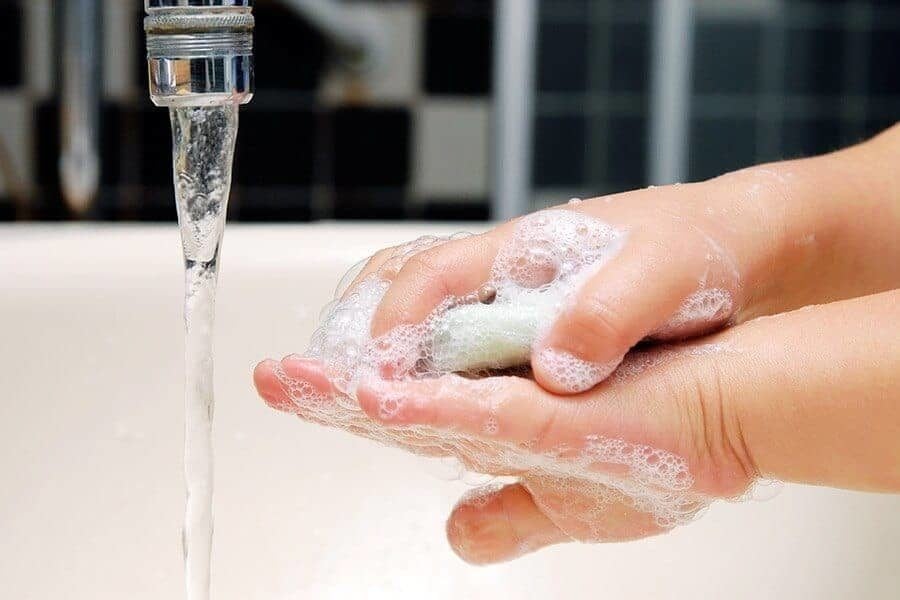May be missing link in the spread of infection
Health technology company Infonaut, a MaRS client, has released a study showing that hospital patients may be at significant risk of infection due to their own poor hand hygiene. The findings were measured in a Toronto hospital using Infonaut’s Hospital Watch Live™ system, innovative technology designed to assist hospitals in monitoring and controlling the spread of infections by analyzing the movement and behaviour of hospital staff, patients and equipment.
The study found that patients on average washed their hands only 30% of the time following a bathroom visit. Many dangerous pathogens commonly found in hospitals are transmitted through fecal-oral contact with contaminated surfaces in bathrooms and other areas. Hand hygiene compliance initiatives typically focus on healthcare workers rather than patients to stop the spread of infections.
“The extent of this problem has not been visible until now because it has not been measurable until now,” said Dr. Colin Furness, the director of research and knowledge development at Infonaut, and an adjunct professor at the University of Toronto’s Faculty of Information. “Enormous resources are devoted to research and practice for improving staff hand hygiene compliance, but patient hand hygiene has received scant attention.”
The findings suggest that there may be significant benefits to creating patient-centric hand hygiene protocols in hospitals.
“This is important because getting patients to wash their hands more could potentially reduce their risk of picking up infections in the hospital,” said Dr. Jocelyn Srigley, associate medical director of infection prevention and control at Hamilton Health Sciences and one of the study’s authors.
The study, titled “Measurement of patient hand hygiene in multiorgan transplant units using a novel technology: an observational study,” was published online in the medical journal, Infection Control and Hospital Epidemiology.
Key statistics from the study found:
- During 12,000 bathroom visits, patients on average washed their hands only 30% of the time.
- Hand hygiene was lowest at breakfast (30%) and highest at dinner (45%).
- Average patient hand hygiene when entering and leaving a room was less than 5%, and even lower for visits to patient kitchens.
Dr. Furness conducted the study analysis, along with Dr. Srigley and Dr. Michael Gardam, director of infection prevention and control at University Health Network. Recently, the same research team published their findings showing that hand hygiene rates triple among healthcare workers when a compliance auditor is visible.
Hospital Watch Live uses location-aware ultrasound transponders to track the movement and behaviour of staff, patients and equipment in hospitals. Transponders are also affixed to soap and hand sanitizer dispensers to signal when they are used. Once collected, movement patterns are time-stamped and sent by transponder to a nearby receiver for geospatial analysis.
“Infonaut’s goal is to take our client hospitals beyond staff hand hygiene compliance, to answer the difficult questions of when, where and how infections are spread,” said Niall Wallace, CEO, Infonaut. “MaRS has been instrumental in helping bring Infonaut’s innovation to market through access to their expert advisors and services.”
“Bringing a game-changing, innovative product like Hospital Watch Live to market requires a wide range of entrepreneurial skills,” said Sonia Sanhueza, MaRS Venture Services Lead, Health. “We’re pleased to have supported Infonaut throughout this complex, iterative process and we’re delighted with the company’s well-earned success.”
Supported by Canada Health Infoway, the Health Technology Exchange, George Brown College and GOJO Industries, the study was one of a series of research projects undertaken during a commercialization trial of Hospital Watch Live in Toronto. Based on its commercialization experiences in Toronto and the current measurement work with the Jacobs Institute in Buffalo, New York, Infonaut will offer infection control consulting to hospitals.



Hands need to be washed for at least 20 seconds; or by the time it takes to sing “Happy Birthday to you” twice.